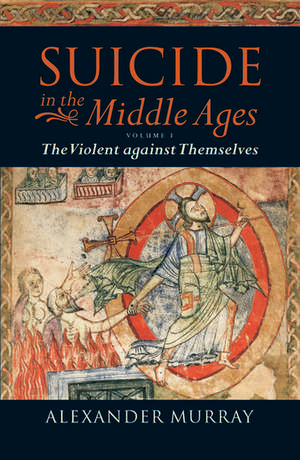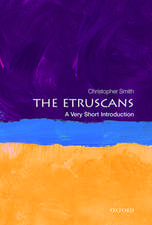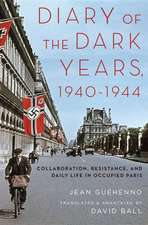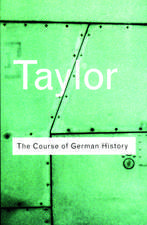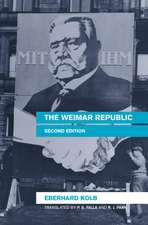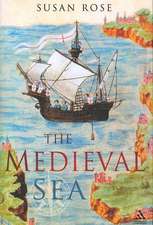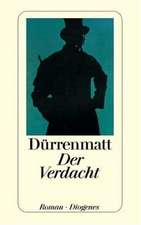Suicide in the Middle Ages: Volume 1: The Violent against Themselves: Suicide in the Middle Ages
Alexander Murrayen Limba Engleză Paperback – 18 dec 2008
Preț: 394.02 lei
Preț vechi: 480.59 lei
-18% Nou
Puncte Express: 591
Preț estimativ în valută:
75.40€ • 77.90$ • 62.72£
75.40€ • 77.90$ • 62.72£
Carte tipărită la comandă
Livrare economică 10-15 martie
Preluare comenzi: 021 569.72.76
Specificații
ISBN-13: 9780199553112
ISBN-10: 0199553114
Pagini: 510
Ilustrații: frontispiece, 4 pp plates
Dimensiuni: 156 x 234 x 29 mm
Greutate: 0.77 kg
Editura: OUP OXFORD
Colecția OUP Oxford
Seria Suicide in the Middle Ages
Locul publicării:Oxford, United Kingdom
ISBN-10: 0199553114
Pagini: 510
Ilustrații: frontispiece, 4 pp plates
Dimensiuni: 156 x 234 x 29 mm
Greutate: 0.77 kg
Editura: OUP OXFORD
Colecția OUP Oxford
Seria Suicide in the Middle Ages
Locul publicării:Oxford, United Kingdom
Recenzii
One of the most unusual features of this book is its expansiveness. I cannot think of another academic history monograph that gives so much space to the stories themselves
Murray tells his stories with great verve and then mulls them over, bringing to bear all the tools of source analysis, but he is never afraid to offer a final opinion of his own. The result is immensely readable
The years of effort that went into this task have paid rich dividends ... This volume provides us with by far the most detailed record of medieval suicide to date
This is the very model of scrupulous scholarship
Alexander Murray is the author of Reason and Society in the Middle Ages (1978), an exemplary "new" history, which reinterprets medieval mentalities on a European scale. Suicide in the Middle Ages is a magnum opus which has been long awaited. It is projected as a trilogy, of which the volume reviewed here is the first ... compelling reading ... Searching for suicides has made Murray a pioneer in the comparative study of the legal records of medieval Europe.
His cull of medieval sources aims to be as inclusive as possible, and this is surely to err in the right direction. The reader is given enough information to consider the evidence and decide whether this or that case is credible or really a suicide. I cannot think of any type of medieval document which Murray has overlooked in his search for suicides. Now that he has opened up the subject in this lucid and meticulous way, more individual cases will no doubt come to light and be added to his dossier ... he argues convincingly that religious sources can give us credible evidence ... The material from religious sources extends Murray's chronological and geographical range, and this is particularly valuable for Italy, where legal records are so sparse.
Murray's method is deliberately personal without being idiosyncratic. He defined his own limits, and he shows future researchers what to look for ... Despite the patchiness of the available information, this volume concludes with a series of graphs and statistical tables. These are an essential way of summarizing the data ... Historical research may help to show that suicide is an invariable part of being human. The variables are other people's reactions to it and how they express them. The history of such reactions in medieval culture is the subject of Murray's next two volumes, which promise to be as firmly rooted as this one in clarity of exposition, thoroughness of erudition and imaginative sympathy.
Murray tells his stories with great verve and then mulls them over, bringing to bear all the tools of source analysis, but he is never afraid to offer a final opinion of his own. The result is immensely readable
The years of effort that went into this task have paid rich dividends ... This volume provides us with by far the most detailed record of medieval suicide to date
This is the very model of scrupulous scholarship
Alexander Murray is the author of Reason and Society in the Middle Ages (1978), an exemplary "new" history, which reinterprets medieval mentalities on a European scale. Suicide in the Middle Ages is a magnum opus which has been long awaited. It is projected as a trilogy, of which the volume reviewed here is the first ... compelling reading ... Searching for suicides has made Murray a pioneer in the comparative study of the legal records of medieval Europe.
His cull of medieval sources aims to be as inclusive as possible, and this is surely to err in the right direction. The reader is given enough information to consider the evidence and decide whether this or that case is credible or really a suicide. I cannot think of any type of medieval document which Murray has overlooked in his search for suicides. Now that he has opened up the subject in this lucid and meticulous way, more individual cases will no doubt come to light and be added to his dossier ... he argues convincingly that religious sources can give us credible evidence ... The material from religious sources extends Murray's chronological and geographical range, and this is particularly valuable for Italy, where legal records are so sparse.
Murray's method is deliberately personal without being idiosyncratic. He defined his own limits, and he shows future researchers what to look for ... Despite the patchiness of the available information, this volume concludes with a series of graphs and statistical tables. These are an essential way of summarizing the data ... Historical research may help to show that suicide is an invariable part of being human. The variables are other people's reactions to it and how they express them. The history of such reactions in medieval culture is the subject of Murray's next two volumes, which promise to be as firmly rooted as this one in clarity of exposition, thoroughness of erudition and imaginative sympathy.
Notă biografică
Alexander Murray is Lecturer in Modern History at the University of Oxford and Fellow and Praelector in Modern History at University College, Oxford.
